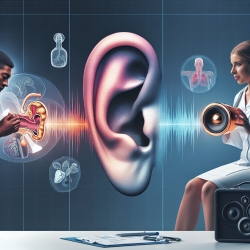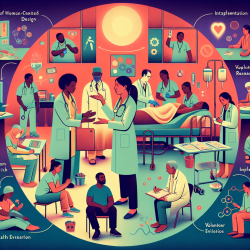In the evolving field of speech-language pathology and audiology, staying abreast of the latest research findings is crucial for clinicians aiming to enhance their practice and provide the best care for their clients. One area that demands attention is the understanding of acoustic trauma and its implications on hearing health. A thorough comprehension of the anatomical and physiological consequences of acoustic trauma can significantly inform and improve clinical strategies. This post aims to bridge the gap between research and practice by highlighting key insights from the literature and encouraging further exploration.
Acoustic trauma, resulting from exposure to high levels of noise, can lead to a range of hearing impairments, from temporary threshold shifts to permanent hearing loss. The intricacies of how noise exposure damages the auditory system are critical for developing effective prevention and intervention strategies. For practitioners in the field, grasping the underpinnings of these changes is the first step towards mitigating the impact of acoustic trauma on individuals.
Firstly, understanding the mechanical and cellular changes that occur in the cochlea following noise exposure is essential. These changes can lead to hair cell damage, which is often irreversible, resulting in permanent hearing loss. By incorporating this knowledge into practice, clinicians can advocate for and implement more robust hearing conservation programs, especially in settings where individuals are at risk of high noise exposure, such as certain workplaces or during recreational activities.
Moreover, recognizing the early signs of acoustic trauma in patients allows for timely intervention, potentially preventing further damage. This includes not only the administration of hearing tests but also educating patients on the risks of noise exposure and the importance of protective measures. Clinicians can leverage their understanding of the physiological consequences of acoustic trauma to tailor their communication and intervention strategies, making them more relevant and effective for each patient.
Additionally, the psychological and social implications of hearing loss resulting from acoustic trauma underscore the importance of a holistic approach to treatment. Clinicians are encouraged to consider not only the physiological aspects but also the impact on the patient's quality of life. This holistic view can inform counseling strategies, helping patients to cope with the challenges associated with hearing loss and facilitating their adjustment to changes in hearing.
For practitioners looking to deepen their understanding of acoustic trauma and its consequences, further research and continuous education are invaluable. Engaging with the latest literature, attending conferences, and participating in professional networks can provide insights into innovative assessment and intervention techniques, enriching clinical practice.
In conclusion, integrating knowledge of the anatomical and physiological consequences of acoustic trauma into clinical practice enhances the ability of speech-language pathologists and audiologists to prevent, identify, and treat hearing impairments more effectively. By embracing a research-informed approach, clinicians can contribute to better hearing health outcomes for their patients.
To read the original research paper, please follow this link: Anatomical and Physiological Consequences of Acoustic Trauma: A Short Review.










